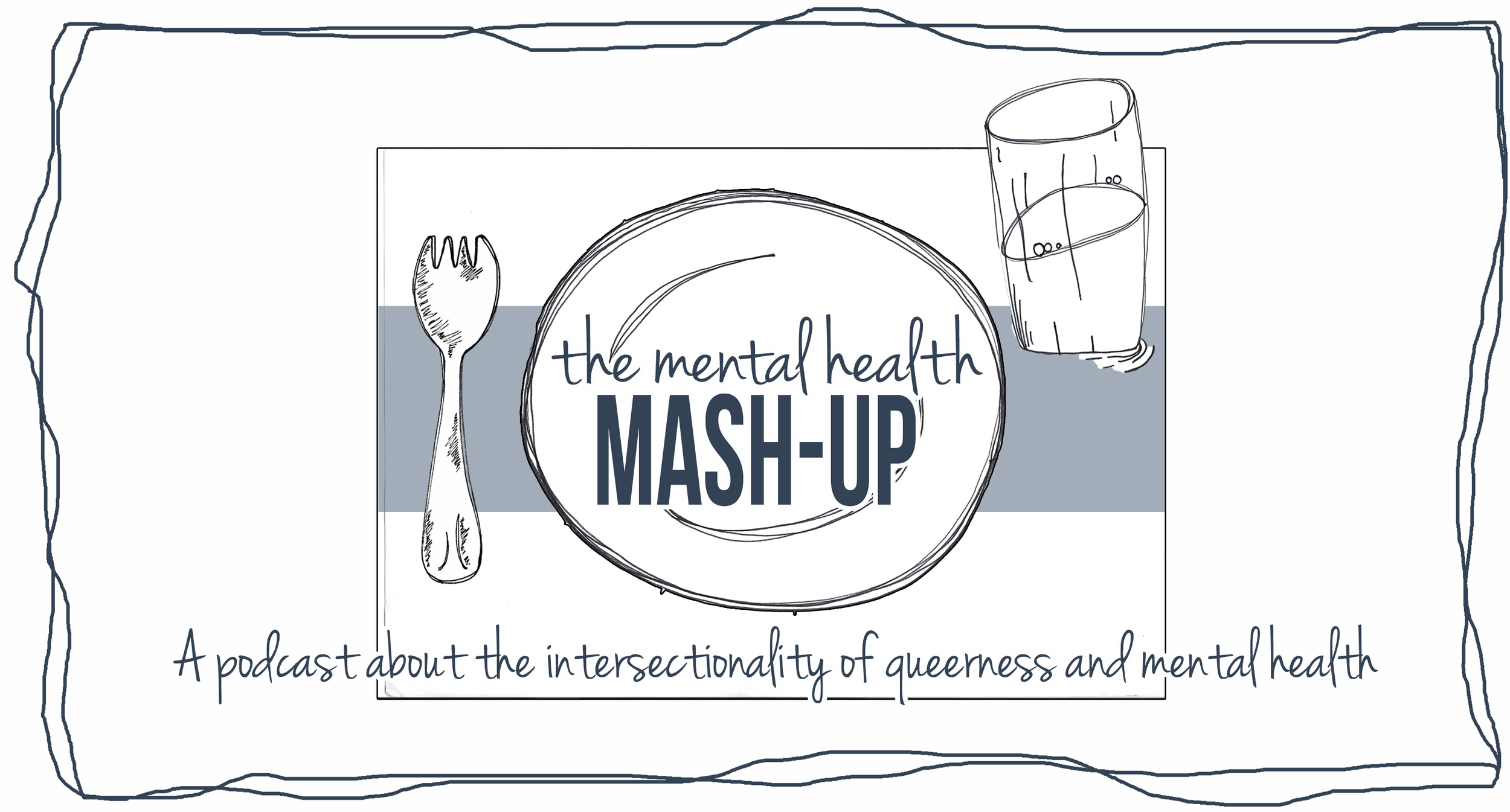Happy Monday REVOLUTIONARIES! Today on the Mental Health Mash-Up we're thinking about "Membership Cards." How we get them, who gives them, when "membership expires," how we're accountable to the spaces to which we're allowed entry and, of course, how this affects our mental health.
We often joke about "Membership Cards." It's a way to humorously commiserate about the struggle of the marginalized as if there was some secret exclusive queer country club where we could gather to drink organic fair trade coffee and discuss oppression without the privileged rif raf getting in and mucking up the place. The truth of the matter is though, we need those spaces, not for their exclusionary value but for their safety and healing.
So what's the problem? Gather unicorns, gather!
Well, there are a few challenges we've noticed. For one unicorns are a diverse group- we come in different colors, shapes, bodies, sizes, with varying abilities of flight and magick. The "Queer" community cuts across all other demographics of race, ethnicity, gender, physical/mental ability, age and socioeconomic statuses. Some of us are athletes, intellectuals and self-proclaimed geeks! Some of us crave the nightlife, a blaring dance track and fancy cocktails while others of us want nothing more than to hunker down with some hot tea, a good book or our favorite Netflix series on a Friday night.
So, okay, start a meet-up group to check out the newest clubs, get folks together for a hike, organize a book club, plan a movie night and stop whining.
Okay, okay, we could do that and know that folks do! {As a sidenote, if you're trying to get out and meet folks we totally recommend doing a quick search on Meetup for folks interested in similar activities. Of course you won't know if it's a good fit until you go but it totally takes a ton of the social pressure off that everyone is going with the intention of meeting new people!} Here comes the next challenge. Do our memberships, especially for those of us that fall in the middle of the spectrum or have some fluidity in our identities, depend on how they currently function in our lives? Sure, we can hope that folks can check their biphobia at the door if someone happens to have an other gendered partner at any particular moment but how about if your group's activity is a monthly "ladies" night where everyone gathers to dance, hang and meet who everyone else is dating? The LGBTQ community often gathers in gender segregated "safe" spaces (and we're not even at how this affects intersex|genderqueer|agender|bigender folks yet.) While we're on that subject what happens when we've built community in one identity and find that our identity starts to shift? How does it affect all of our interactions? Even if no one is drawing a hard line to keep us out, how comfortable is it to change the safety of a space with your presence or to bring in someone who changes the safety of a space when you yourself are acutely aware of how necessary safe space is?
It gets confusing.
And, yet, anyone with multiple identities (read: ALL OF US) will tell you that different parts of our identities need to be attended to, reflected and nurtured at different times. Many of us with multiple marginalized identities will also attest to the fact that finding these spaces can be an uphill battle and compartmentalizing the healing around them can be exhausting! So when our identities shift we're often stuck in the grief of losing these memberships while also conflicted with wanting to protect space we know was so important to us.
Is there a way to access these spaces while still honoring them in our present form?
How are we accountable to the privilege of the new memberships we hold while still honoring that the memberships we held over the course of our life journey might still need some of our attention?
Here are some thoughts on how to manage changing memberships:
- Take a moment to reflect. You know how marginalized communities are always talking about "holding space?" Hold some space for yourself and the process that you're going through so that you can get a clear picture of what you need and where you might be able to access it without impeding on anyone else's needs/space. We were really moved with this article on space holding around a different type of transition, but we think that it holds a lot of resonance for the complicated and emotional work of holding space for ourselves in the fluidity of queer identity.
- Get accountable! Take some time to notice as your membership changes and be honest and open about what you observe. Then if the same behavior that was once acceptable is problematic take steps to do something about it. Honor your current and past memberships by realizing the new intersections of privilege and oppression you find yourself at. So for example, you're a newly passing transman? Does that mean you're only allowed to access communities that hold an assumption of a cis-male experience? No! Your journey is (and will continue to be different) but know that you no longer have an all access pass to female space and that your interactions with women are informed by your male identity. We've recently been in conversation with folks about this article on Rethinking Masculinity as a Newly Masculine Presenting Person and really dig the reflections and the tips.
- Accept if your membership level changes! Sometimes when our memberships fluctuate (via ourselves or our partners) it's just about conscious, respectful navigation. So for example, you're a queer female identified person dating a fabulous feminist man? Great! Take your new love interest out on the town and enjoy that new queer art gallery opening on reflections of femininity and power, but accept that you might have to forego the small group women's only discussion space afterwards if you want to hang with your honey all night. Sometimes you might also have to accept that membership may change from identified community member to ally. For example, you've been a feminist female identified activist fighting for women's safety on your college campus but over the course of the past year have started to align with your transmasculine identity. You identify as male, use male pronouns and are recognized as male out in the world. Should you stop supporting the issue of safety on your campus? Hell, no! We need strong feminist men and safety is important for all genders! However, maybe take a supportive role to your female co-organizers for the next rally on keeping the gym safe for female students and take a leadership role in the discussion group on how men can create a safer campus. It might be difficult to see your membership changing but allies are important and if you can accept this role respectfully you can still be a part of the communities that are important to you. We really like Everyday Feminism's article on 30 Ways to be a Better Ally.
Memberships are a complicated issue- especially in the context of queer community. Unlike gathering around race our memberships can sometimes shift depending on our ascribed, attributed or functional identities. It can be a lot of work to keep all your cards updated but it's totally worth it- there are so many glittery unicorn filled intersectional discussions, social gatherings and movements that need your participation and support! It might be troublesome but it makes us more conscious, honoring humans, that can engage in safe and authentic interactions with one another. So go forth and mingle in identity appropriate circles, we believe in you.
In COM|PASSionate REVOLUTION,
Skye + Traci
----------
Skye is a youth worker, educator, activist and white transmasculine human. Traci is a therapist, yoga teacher, educator and queer vegan femme-inist of color. They reside, practice, navigate, process, survive and flourish in the Southern California area.

